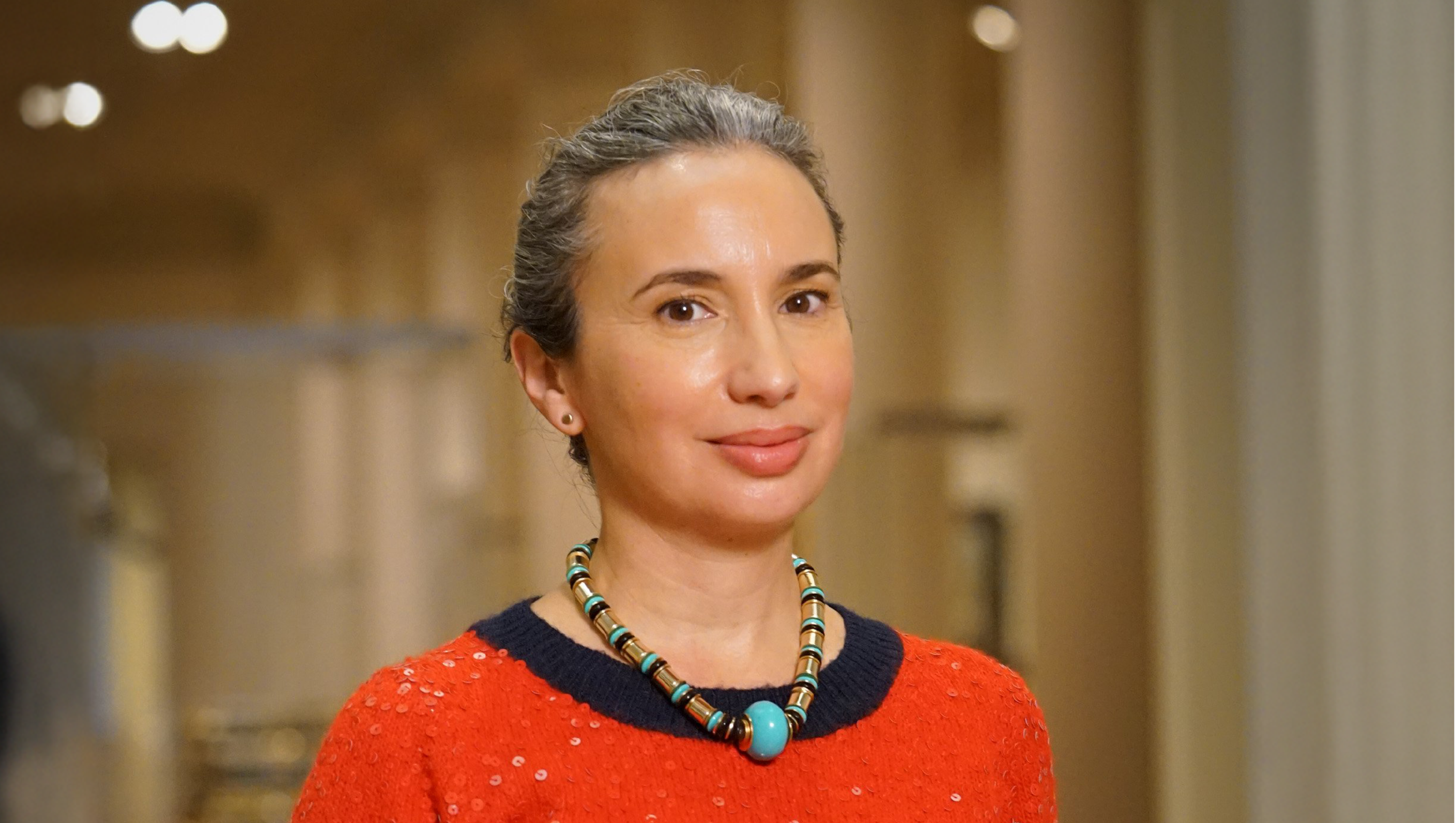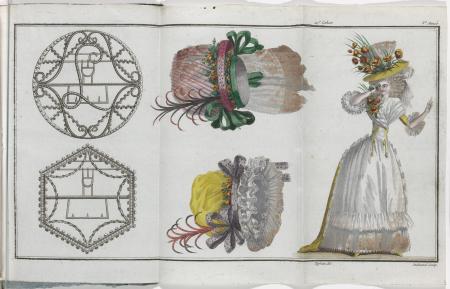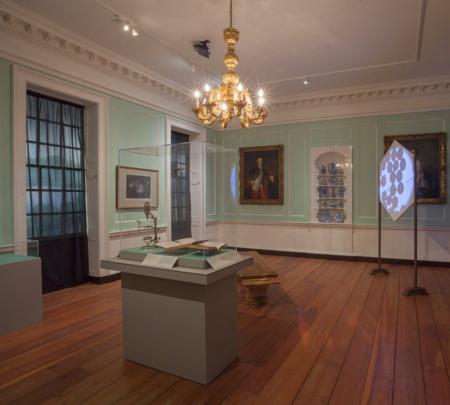
By Amanda Malone
Nicole LaBouff ‘13 (Ph.D. History) is currently Curator in the Department of Costume and Textiles at Los Angeles County Museum of Art (LACMA). On any given day, she may be found working in LACMA’s storage sites across LA County, at a donor’s house viewing their collection or participating in a workshop on dressing mannequins. Some days she works from home, organizing the photographs she took on a given week. In anticipation of LACMA’s David Geffen Galleries, the new permanent collection building slated to open next year, LaBouff also works cross-departmentally to review items for the new displays.
LaBouff’s professional journey has been as varied as her work days: In addition to her Ph.D. in history from UC Irvine, she holds degrees in anthropology, archeology and the history of dress, and has worked in London, Minneapolis and Los Angeles. However, her journey has been bookended by her experiences at LACMA, where she started as a volunteer and then in the museum job that first inspired her interest in pursuing a Ph.D.
Finding a pattern: pursuing the history of dress
LaBouff has always been interested in working with objects. As an undergraduate, she had hopes of becoming a physical anthropologist. “But really, I think that was because we did labs,” she says, “and we would actually work with bones and things like that. And I liked working with actual objects.” She went on to earn a master’s degree in archaeology, writing a thesis on personal ornaments – beads and pendants made to be worn on the body – made in the Ice Age. Following her interests working with objects and thinking about the body, she took sewing and pattern-making classes at a local community college, where an instructor encouraged her to study the history of costume.
This led her to the renowned Courtauld Institute of Art in London, where LaBouff completed an MPhil in the History of Dress under fashion historian Aileen Ribeiro, and interned at the Royal Ceremonial Dress Collection at Kensington Palace. “And it was just idyllic,” LaBouff says of her time at the Collection, “I had no idea how rare and special that place was.” But this memorable experience would establish her love for working in museums with historic dress.
After returning to her native Los Angeles, LaBouff reached out to LACMA and started volunteering to gain additional museum experience. They later offered her a position, and she took the opportunity to get her foot in the door. Though it was entry-level, LaBouff was grateful for the experience. “I got to meet people in all different departments,” she says, “But after a while, I thought I would like to pursue curatorial work and I didn't feel really equipped enough to do that work in the way that I wanted to. I felt I wanted to do a Ph.D.”

All dressed up, deciding where to go
Incidentally, LaBouff’s sister had just graduated with an MFA in creative writing and a Ph.D. in English from UC Irvine, and suggested she speak with faculty about her interests. LaBouff landed on the history program as the most natural fit for her interest in object-based study, and at UCI, her work evolved. “I had come in really committed to the history of fashion and dress and clothing, but then through the coursework I did, became more interested in other kinds of textiles,” she explains. She ended up writing her dissertation on Elizabethan embroidery and women’s domestic work, focusing on furnishing textiles, interior spaces and architecture.
LaBouff would find her dissertation incredibly useful in her first position after the Ph.D. Though she had thoughts of becoming a professor, she was recommended for a job at the Minneapolis Institute of Art (Mia) through another curator. “It was a really great place,” she says, “because with my dissertation I had shifted my focus to flat furnishing textiles, and away from dress. And that was actually a really great collection, because they did not have a fashion collection but had wonderful tapestries and fiber art works. So I got to really dig into new kinds of objects that I hadn't worked with when I was at LACMA.”

The Ph.D. had also equipped her with a new way of thinking about people and lived experience, useful for one of her first tasks at Mia: reinterpreting the museum’s period rooms. As she worked on a display on 18th-century natural history as it was practiced in the home, she had the chance to explore ideas that didn’t make it into the dissertation – thinking about women’s engagement with nature across different practices. This work eventually resulted in her publishing an article about women horticulturalists who were highly regarded by leading botanists in their time, but have now faded from history.
In fact, LaBouff’s work often evolves with the objects she works with, in a way that may be quite different from a professor’s self-directed research path. “My research interests inform the collections I work with, and the collections I work with push my research in new directions. It’s this constant dialog,” she explains. LaBouff is always responding to the weird surprises and unforeseen circumstances collections present. As a curator, it’s the weirdness of objects, and the questions they raise, that lead to her exhibitions.
Advice for Ph.D.s: fashioning a career alongside scholarly work
LaBouff’s professional journey has yielded great advice for Ph.D. hopefuls. “I think for anyone doing a Ph.D., you’ll have a lot more happiness and satisfaction if you go into it as an opportunity to read widely and deeply and think in new ways, rather than hoping it will help you land a specific job,” LaBouff says. She would also encourage any Ph.D. student interested in costume and textiles or museum work to lay the foundation for this work before graduation, while they have more flexibility.
LaBouff continues to find value in the professional networks and background in history she cultivated at UCI. She still reaches out to her cohort for their historical expertise, even as her network has grown to include curators, artists and art dealers. She also continues to draw on her background in history, which allows her to bring in material from other fields. Luckily, LACMA has been just the place for LaBouff’s capacious interests. “With all of these cross-departmental exhibitions we're working on now, institutionally, there's this real impetus to mix media, and that's fascinating,” she says.
Amanda Malone is a Ph.D. candidate in English at UC Irvine.
Interested in reading more from the School of Humanities? Sign up for our monthly newsletter.
